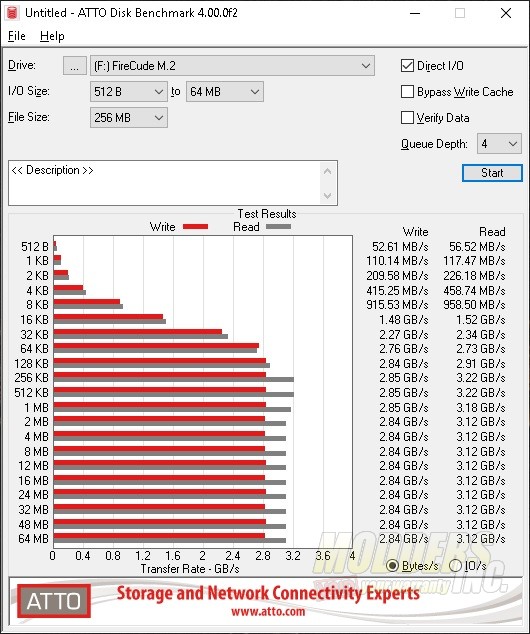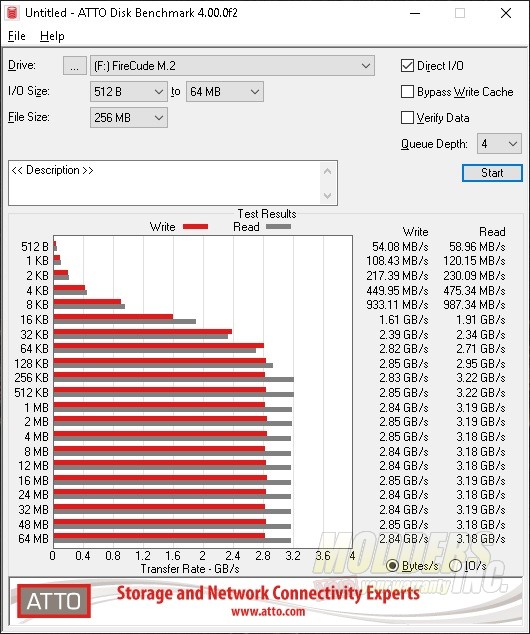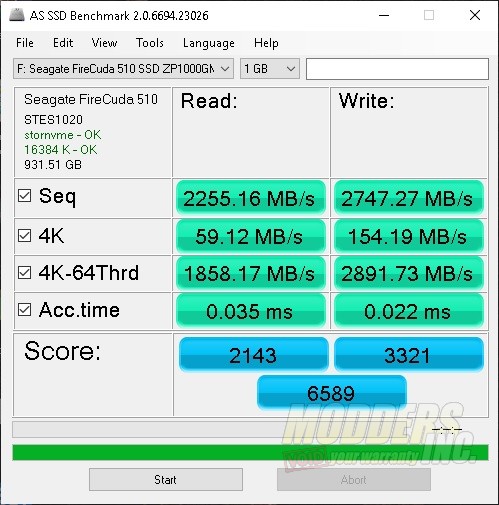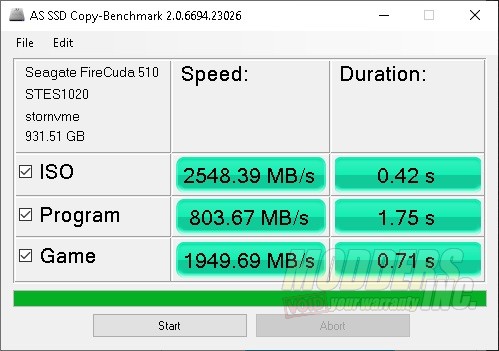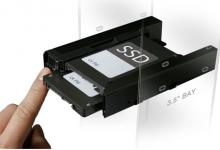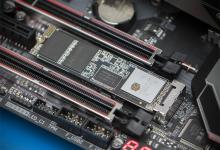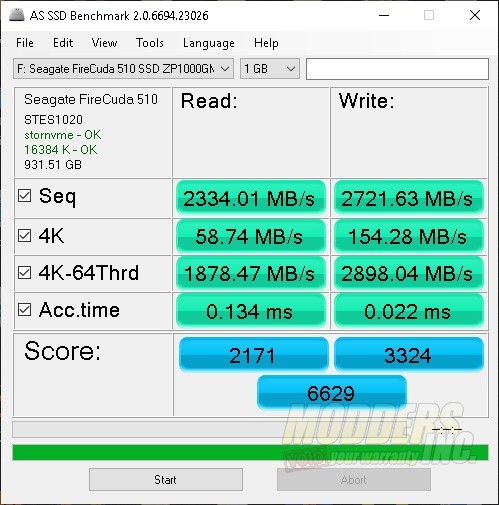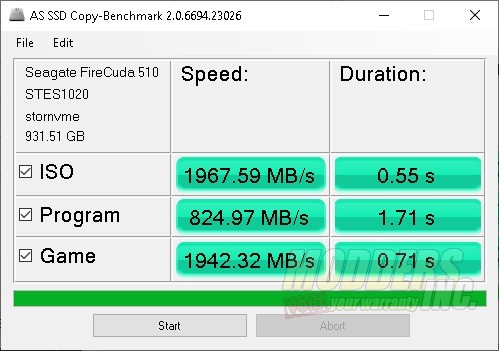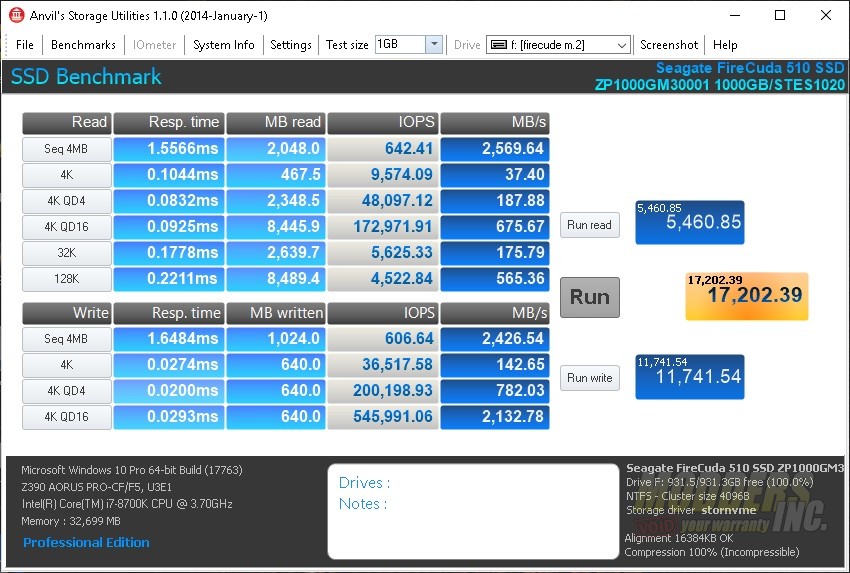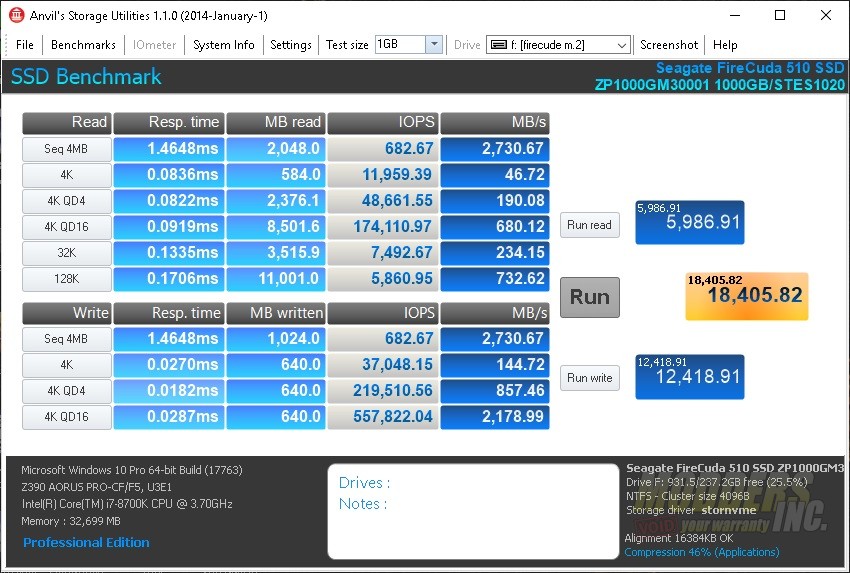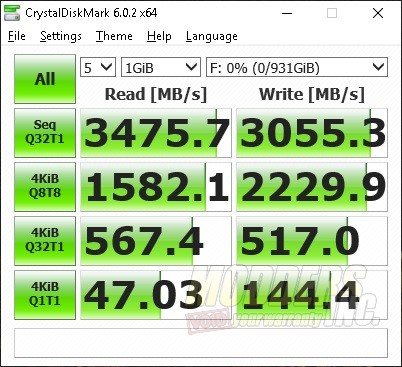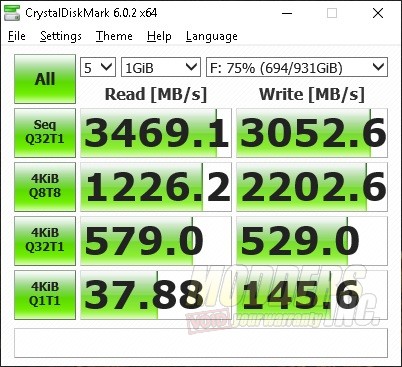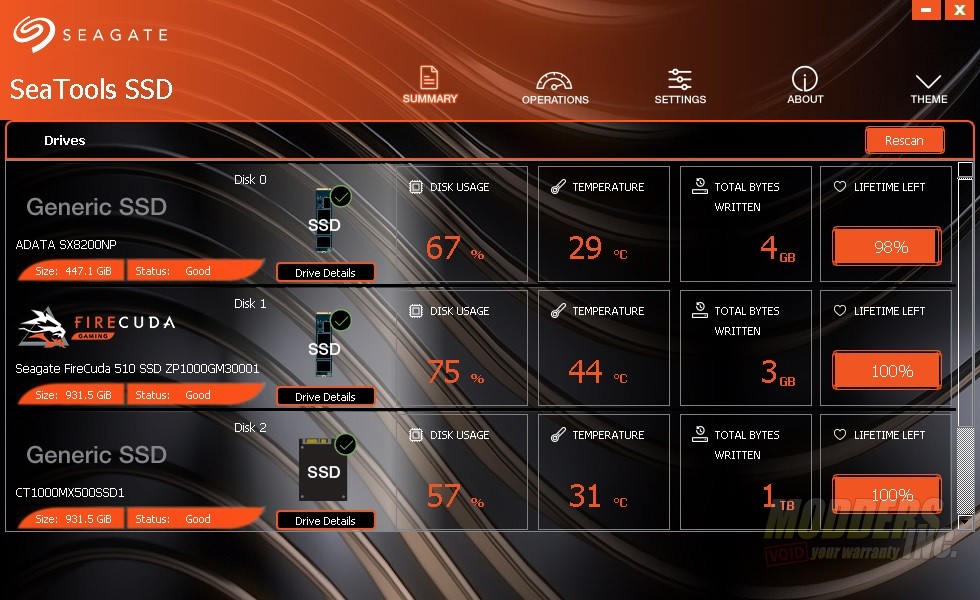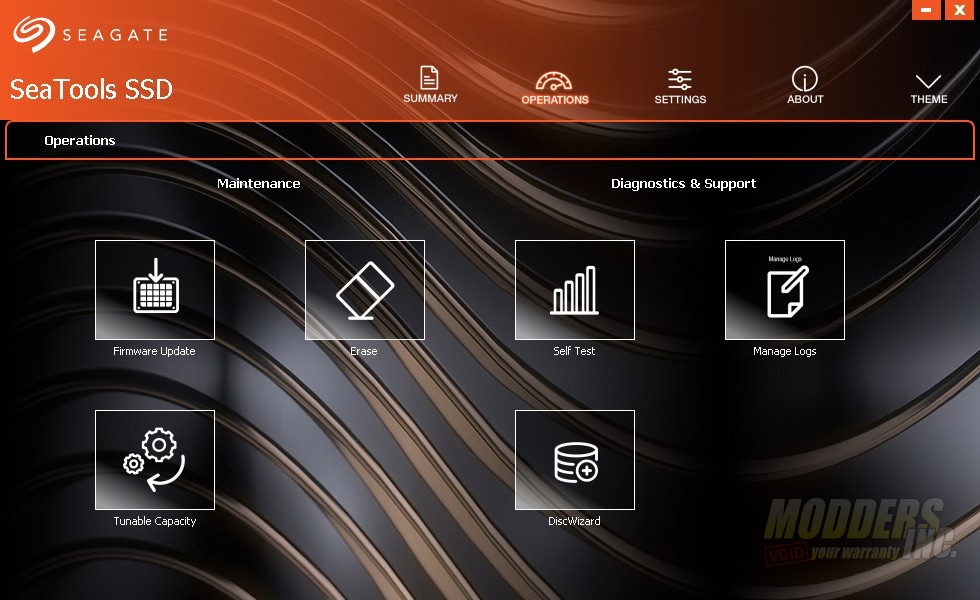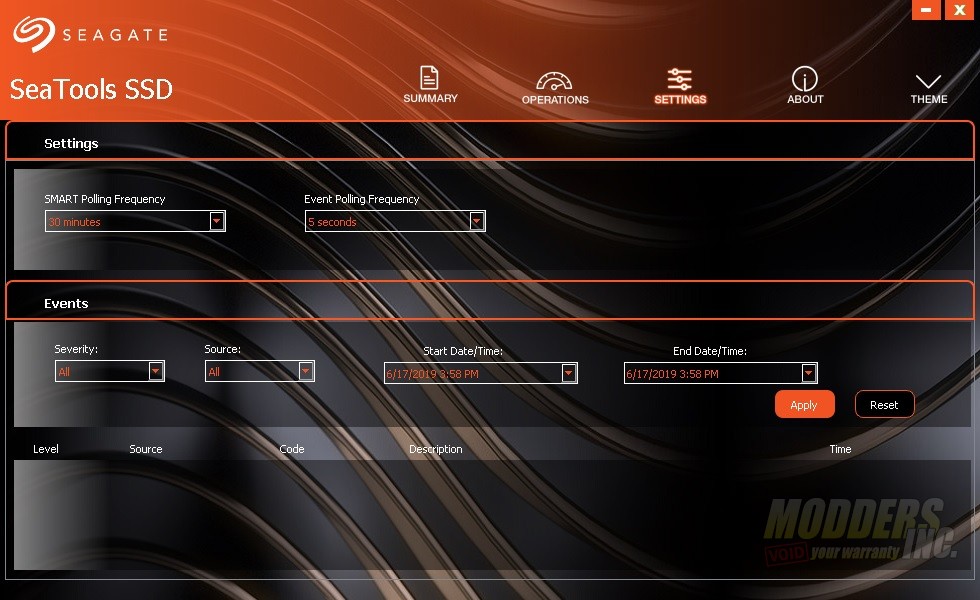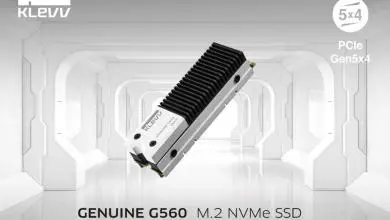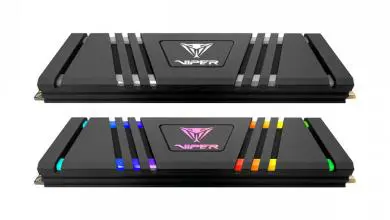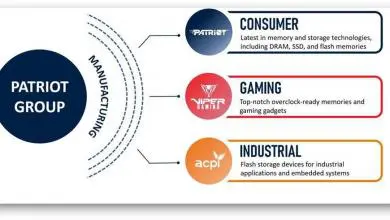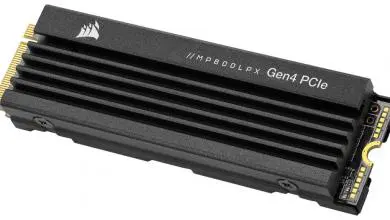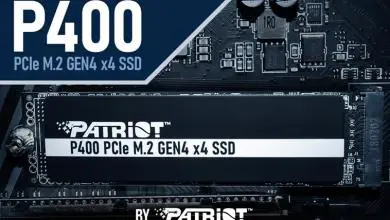Seagate FireCuda Gaming 510 NVMe Review
Test Setup & Results
| Component |
Product Name | Provided By |
| Processor | Intel Core i7-8700K (Retail) | Intel |
| Motherboard | Aorus Z390 Pro | Gigabyte |
| Memory | G.Skill SniperX 2x8GB @ 3400MHz 16-16-16-36 (XMP) | G.Skill |
| Drive | Seagate FireCuda 510 SSD , Samsung 240 EVO 256GB SSD | Seagate/Samsung |
| Video Card | Zotac Geforce GTX 1080 mini | Zotac |
| Monitor | BenQ EL2870U 28 inch 4K HDR Gaming Monitor 3840×2160 @ 60 Hz | |
| Case | DimasTech EasyXL | DimasTech |
| Power Supply | Cooler Master Silent Pro M2 1500W | Cooler Master |
| Operating System | Windows 10 x64 Pro with latest patches and updates |
All of these tests were performed before I removed the heatsink. Additional testing was done after the heatsink was removed. The first round of benchmarks was run with an empty drive. The second round of benchmarks was run with the drive over 75% full. Each benchmark was run three times and we recorded the best overall scores for this review. There were no less than 20 minutes between each benchmark to give the drive time to cool down and rest.
ATTO Disk Benchmark
The ATTO Disk Benchmark utility was designed to measure regular disk drive performance. However, its more than capable of measuring both USB flash drive and SSD speeds as well. The utility measures disk performance rates for various sizes of files and displays the results in a bar chart showing read and write speeds at each file size. The results are displayed in megabytes per second.
Both tests showed very similar results when looking at the Fresh out of Box test and the FireCuda 510 at 75% capacity. However, the 75% drive capacity test shows a slight bump in read speeds.
AS SSD Benchmark
AS SSD Benchmark is a simple and portable utility which helps you measure the effectiveness and performance of any solid state (SSD) drives connected to your system. It will test “Seq”, “4K”, “4K-64Thrd” and Access Time. In the end, it will give your SSD a score. 4K tests the read/write abilities by access random 4K blocks while the Sequential test measures how fast the drive can read a 1GB file. For AS SSD, we run the SSD benchmark and the Copy Benchmark.
Fresh Out of Box
75% Drive Capacity
I tend to focus more on the 75% filled drive results. After overwriting the full capacity of the drive many times and filling it to 75% capacity this helps to condition the drive. Conditioning the drive gives a more realistic approach to results long term. SSD’s do have a limited lifespan however, I’ve not seen a consumer drive fail due to wearing out the NAND. At 75%, AS SSD reports back 2721 MB/s sequential read and 2334 MB/s sequential write speeds. At 4K we see 154.28 MB/s read and 58.74 MB/s write speeds.
Anvil’s Storage Utilities
Anvil’s Storage Utilities is a powerful performance measurement tool for both traditional hard drives and SSD’s. The tool can monitor, and test read and write speeds on hard drives while also providing information from the Windows Management Instrumentation (WMI) that provides basic information about the disk and its parameters, including partitions and volumes.
The ANVIL SSD benchmark resulted in sequential read speed of 2569 MB/s sequential read and 2426 MB/s sequential writes on the fresh out of box tests. Again, we see a slight increase in speeds on the slightly used test and results of 2730 MB/s sequential write and 2730 MB/s sequential read speeds. 4K QD4 showed a similar increase with the fresh tests coming in at 187 MB/s read and 782 MB/s write whereas the results when the drive is filled to 75% capacity is 190 MB/s reads and 857 MB/s write.
CrystalDiskMark 5.2.1
CrystalDiskMark is designed to quickly test the performance of your hard drives. Currently, the program allows to measure sequential and random read/write speeds.
Fresh out of the box testing shows a read speed of 3475 MB/s and a write speed of 3055 MB/s in the sequential tests. At 4k Q32 weget a result of 567 Mb/s on the read speed and 517 MB/s on the writes. Compared to the drive when we fill it to 75%, we get a sequential read speed of 3469 MB/s and a sequential write speed of 3052 MB/s. 4K Q32 tests result in a read speed of 579 MB/s and a write speed of 529 MB/s.
Software
Seagate offers Seatools. This suite of software can actually give you some valuable information on your drive(s). The 1st screen you’ll come to is the dashboard or summary. It reports on all the drives in the system. In this case, I have different SSD’s in operation. It shows the disk usage amount, the current temperature, and the overall health of the drives and how many bytes are written. Pretty handy information to have.
The next tab is the operations tab. Here you can update your drive’s firmware, perform a secure erase, self-test and more.
Finally, on the settings tab, you can set up the polling frequency of your drives as well as set up event logging.
